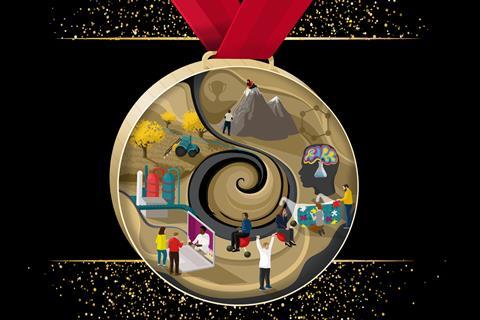Celebrating the exceptional achievements of educators in advancing the chemical sciences

Every year, the Royal Society of Chemistry recognises the excellent work of educators in the chemical sciences with its Education Prizes. The portfolio of prizes is one of the oldest and most prestigious in the world for chemical education, rewarding achievements by individuals, teams and organisations from across the globe in advancing the chemical sciences.
The awards celebrate inspirational, innovative and dedicated people working in primary, secondary, further and higher education – including teachers, technicians and more. These prizes recognise a wide range of skills from curriculum design to effective teaching, and from personal development to working culture.
2021’s line-up of winners
Here is the list of the RSC’s exceptional 2021 Education Prize winners. Drum roll, please …
- Early Career Prize for Excellence in Primary Education: Joshua Piggott, St Nicholas’ C of E First School
- Excellence in Primary Education Prize: Nicola Waller, Centre for Industry Education Collaboration, University of York
- Team Prize for Excellence in Primary Education: Stalham Infant and Junior Schools, Norfolk
- Early Career Prize for Excellence in Secondary and Further Education: Emma Owens, Horizon Community College
- Excellence in Secondary and Further Education Prize: Bob Worley, CLEAPSS
- Team Prize for Excellence in Secondary and Further Education: Pilgrim School Science Department, The Pilgrim School, Lincolnshire
- Early Career Prize for Excellence in Higher Education: Julia Sarju, University of York
- Excellence in Higher Education Prize: Bhavik Patel, University of Brighton
- Team Prize for Excellence in Higher Education: Keele Team-Based Learning Group, Keele University
- Nyholm Prize for Education: Michael Seery, The Open University
- Horizon Prize for Education: Exploring Everyday Chemistry, University of York
- Horizon Prize for Education (joint winners): Molecular Educators, University of California, Los Angeles; Element26, Inc.; Baylor University
- Horizon Prize for Education: Lab_14, University College London
Visit the RSC awards gallery page for detailed profiles of all the winners, as well as video interviews with some of the winners and judges.
Awards overhaul
In 2019, the RSC announced the biggest overhaul of its prizes in history – to be fairer, more inclusive and representative of modern chemical science – which saw the number of prizes for education more than double. The new prize portfolio was expanded to include specific prizes for primary, secondary, further and higher education, as well as prizes for teams and early career educators. Both individuals and teams, at all stages of education or careers, are now eligible for recognition.
One of the most significant changes to the portfolio of awards was the introduction of the new Horizon Prizes for Education, which place more emphasis on teams and collaboration in recent initiatives set to have real impact in chemistry education. In essence, the new award portfolio better reflects the broad roles and collaborative culture within the chemistry community.
‘Over the past two years, educators have had to deal with circumstances unlike anything we have seen in living memory’
A year like no other
It’s no secret that the past year has presented educators everywhere with extremely stretching scenarios – both in the classroom and teaching remotely. The 2021 cohort of winners have done outstanding work under exceptionally challenging circumstances. They have gone above and beyond to provide for their learners through the murky waters of 2020/2021, and deserve special recognition for doing so.
Helen Pain, chief executive of the Royal Society of Chemistry, acknowledges this fortitude and resilience: ‘Over the past two years, educators have had to deal with circumstances unlike anything we have seen in living memory; with remote teaching and lack of access to equipment due to Covid restrictions making the [sciences particularly tricky subjects] to teach. What we have seen is resilience and brilliance – and our winners stand high in a particularly inspiring field of nominees.’

















No comments yet